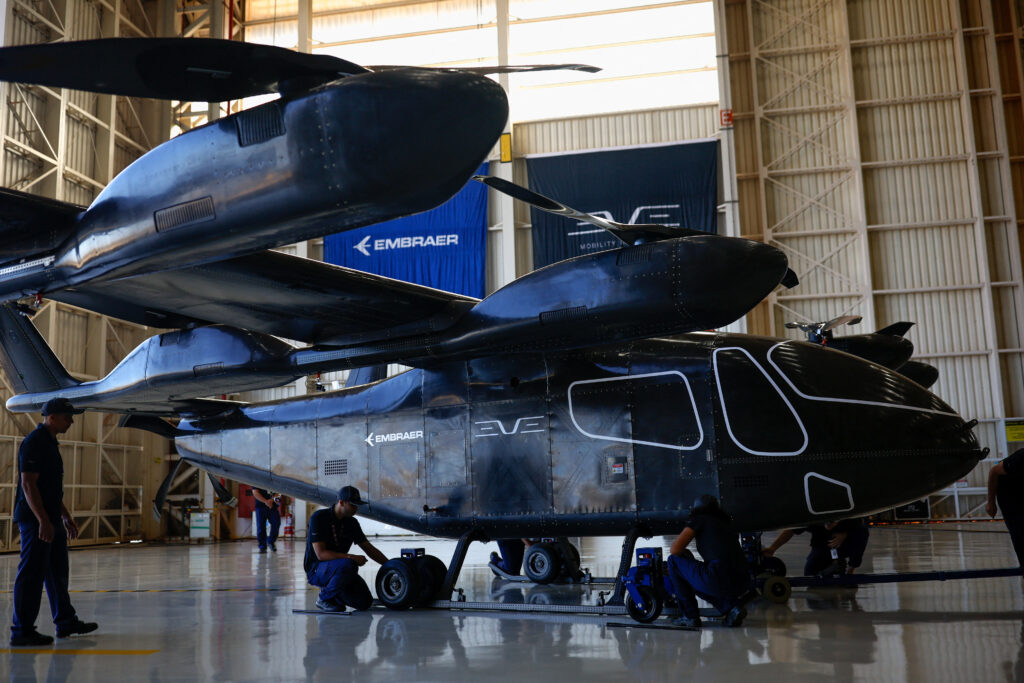Embraer’s Eve rolls out flying taxi prototype, cash needs covered until 2027
By Gabriel Araujo
GAVIAO PEIXOTO, Brazil (Reuters) – Electric aircraft maker Eve has showcased for the first time the full-scale prototype of its “flying taxi,” achieving a milestone as the company aims to obtain certification and enter service in 2026.
Eve, controlled by Embraer, rolled out its electric vertical take-off and landing (eVTOL) aircraft prototype at an event with investors and clients at the Brazilian planemaker’s Gaviao Peixoto plant on July 3.
The company is one of a bevy of startups worldwide developing battery-powered aircraft that can take off and land vertically to ferry travelers on short city trips, allowing them to beat traffic.
Eve expects to fly the prototype by the end of this year or early 2025, CEO Johann Bordais told Reuters at the event, after starting ground tests in July.
The first non-conforming prototype is equipped with electric engines but does not have a cabin or pilot. The final aircraft will seat four passengers and a pilot.
“This prototype is completely remote so we can test aerodynamics, start flying and then make what we call transition flight from vertical to horizontal flight,” Bordais said.
He said having the full-scale prototype ready for tests is another step toward certifying the aircraft, which Eve expects to achieve by 2026. Eve applied for certification in 2022 to Brazil’s civil aviation regulator.
Eve will have five conforming prototypes ready next year and a pre-series eVTOL by 2026 as part of the certification process, Bordais said.
“This is a foundation stone so we can learn and keep going,” he added. “Challenges exist. It’s not something trivial. We are at the limits of technology and aeronautics, and this moment of testing is fundamental.”
Power grids around the world are not ready for so-called flying cars, from the electricity supply to ports for vertical take-off and landing.
NEW INVESTMENT
Eve debuted on the New York Stock Exchange in 2022, raising nearly $400 million to develop its eVTOL, a project initially slated to cost $540 million. The company later secured a $92-million loan from Brazilian state development bank BNDES.
Investors include United Airlines, BAE Systems, Thales, Rolls-Royce, Acciona and Bradesco BBI.
This month, the firm announced a fresh round of fundraising totaling $94 million, with investments from Embraer and Japan’s Nidec, one of its key suppliers.

“This gives us comfort that we will be able to keep developing this product until 2027,” Bordais said, which would meet Eve’s cash needs through the certification process. “We had cash for 2025, now we are going until 2027.”
Eve has amassed nearly 3,000 potential orders ahead of production, which it hopes to eventually convert into firm orders. Interested clients include U.S. carrier United, charter firm Global Crossing and aircraft lessor Azorra.
“We do not need to convert these (letters of intent) right now, especially with the new investment,” Bordais said.

